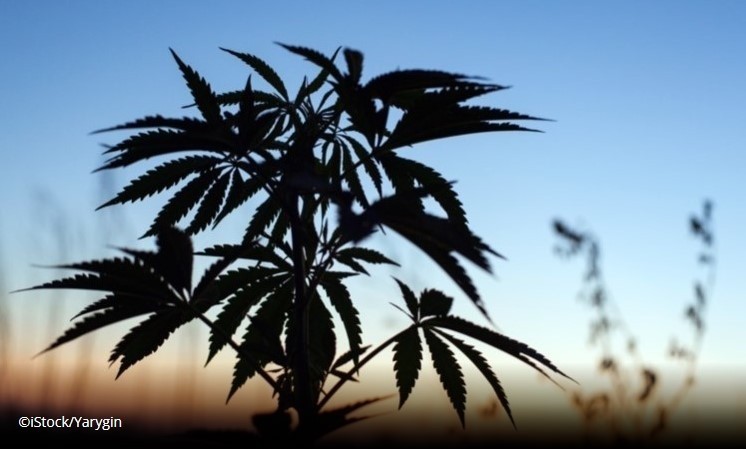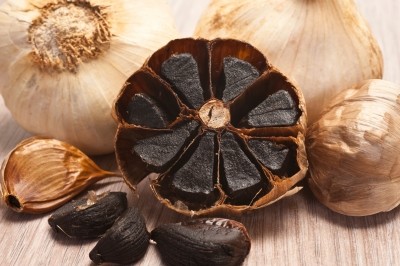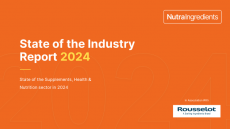Consolidation and quality remain CBD’s prime destinations in maturing market

In a presentation given at VitaFoods, Tim Phillips, Managing Director of Tamarind Intelligence, pointed towards a ‘self-regulation’ of the market that would not only raise but enforce standards as evidence increasingly supports CBD’s benefits .
“Companies have spent hundreds of thousands of dollars or euros on getting the toxicological data together for the approval process,” he said. “They’re not going to sit around while other products remain on the shelf.
“We’re going to see how much trading standards starts step up their enforcement processes as well but I suspect a lot of this is going to be carried out by the industry itself as renewed consumer appetite for the products means a growth in the CBD food category.”
Phillips added that he expected there to be consolidation and some increase in quality once products were validated and eventually approved.
“We assume that products which have not made an application for novel food approval are likely to be lower quality, and will be taken off the market, meaning the average quality will increase,” he said.
“Long terms, a properly regulated market will improve quality, and cause some consolidation, but we haven't yet seen much evidence that this will happen quickly.
“Particularly in the EU, things seem to be moving very slowly, so the only products on the market are those which are willing to take the risk.”
Second only to the US
Phillips’ thoughts come as the Association for the Cannabinoid Industry (ACI) identify the UK CBD market as second only to the US, generating an estimated £690m in annual sales this year.
The ACI attributed this boost to the pandemic, which it said accelerated demand for CBD among stressed out and sleep deprived consumers.
“Anecdotally we are hearing that there is increased interest in wellness products generally, which would include this assumption, BUT we are a data company, and there is very little data to back this up,” added Phillips.
“We are seeing more retailers, both online and offline, carrying CBD products, but restrictions on marketing product with any sort of inferred medical claim means that we really can't correlate this to increased demand for stress relief or sleep products.
“Also, retail patterns were obviously really messed up during COVID-19 lockdown periods, so again difficult to really unpick what is going on. I would say generally there is more interest in self-medication and wellness, so we would expect a pickup for CBD, and we expect to see this growth going into next year.”
The UK market’s promoted position places a spotlight onto its regulatory process that Phillips thought would have repercussions on the CBD’s worldwide market reach.
“Our view at CBD-Intel is that given the kind of UK process in novel food we think that the first approved products are going to come through the UK,” he predicted. “So, we're likely to see the UK market with the first approved CBD market in the world
“I think it's going to kick start both the growth of the market in the UK or re-growth let's say but also it's going to push the products through an application process faster, particularly in the EU but also potentially elsewhere.”
At the time of writing, no products received novel food approval either in the UK or the EU. However, Phillips highlighted a handful of products in both UK and EU that have got through the first stage (validation).
Scientist CBD views unknown
“This only means that their application goes into scientific review, so we really don't yet know what the scientists think about CBD and whether they will approve lots of products, only a few, or none,” Phillips added.
“However, there are differences between the UK and EU systems for novel food approval of CBD because the UK has allowed applicants to stay on the market, whereas the EU has not.
“In other words, companies who made a novel food application can keep selling in the UK but have to take their products off the shelves in the EU until they get approval.
Commenting on the expansion of CBD from a generic to a more specialised ingredient, Phillips said, “I think it's really important for CBD that we're very specifically looking at consumers in particular niches.
“I don't think any longer this is just a generic product that's going into all sorts of food ingested products people are using CBD for very specific reasons, so sports injuries is an example.
“We’re also seeing beauty topicals come through, but pain and anxiety relief are where consumers are looking for very different types of products.
“I think that said that's a growth area and food will grow as we understand more consumers want in a regulated environment.”















